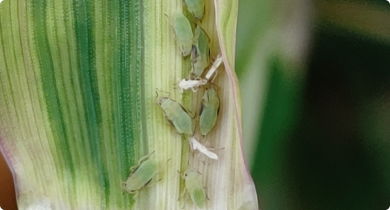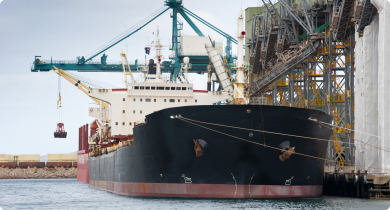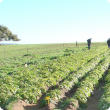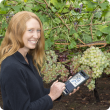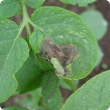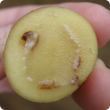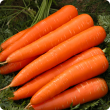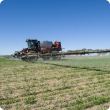Crops
The Department of Primary Industries and Regional Development continues to support the growth and international competitiveness of all crop industries in Western Australia.
With a 2400 kilometre span from its tropical north to its temperate south, WA supports a broad range of cropping industries from rain-fed winter cereals through to irrigated horticultural crops.
In the 2012/13 year the WA cropping industries exported a total of $3.9 billion which comprised: $3.1 billion of cereals, $859 million of pulses, pastures and oilseeds, $142 million of horticultural crops. The major contributors to these exports were wheat ($2.7 billion), canola ($756 million), barley ($377 million), lupins ($42 million), carrots at $48 million, oats ($12 million), and strawberries at $5.5 million.
Filter by search
Filter by topic
- Biosecurity & quarantine (76) Apply Biosecurity & quarantine filter
- (-) Remove Biosecurity filter Biosecurity
- Plant biosecurity (72) Apply Plant biosecurity filter
- Horticulture (66) Apply Horticulture filter
- Pests, weeds & diseases (65) Apply Pests, weeds & diseases filter
- Diseases (36) Apply Diseases filter
- Fruit (32) Apply Fruit filter
- Pests (21) Apply Pests filter
- Vegetables (20) Apply Vegetables filter
- Pest insects (15) Apply Pest insects filter
- Fungi (15) Apply Fungi filter
- Potatoes (12) Apply Potatoes filter
- Citrus (12) Apply Citrus filter
- Nursery & cutflowers (11) Apply Nursery & cutflowers filter
- Grapes & wine (11) Apply Grapes & wine filter
- Quarantine (8) Apply Quarantine filter
- Emergency response (8) Apply Emergency response filter
- Tomatoes (7) Apply Tomatoes filter
- Table grapes (7) Apply Table grapes filter
- Grains (7) Apply Grains filter
- Viruses & virus-like (6) Apply Viruses & virus-like filter
- Irrigated crops (5) Apply Irrigated crops filter
- Crop diseases (5) Apply Crop diseases filter
- Bacteria (5) Apply Bacteria filter
- Wine grapes (4) Apply Wine grapes filter
- Pastures (4) Apply Pastures filter
- Agricultural emergency response (4) Apply Agricultural emergency response filter
- Bananas (4) Apply Bananas filter
- Intrastate movement (4) Apply Intrastate movement filter
- Onions (3) Apply Onions filter
- Production & postharvest (3) Apply Production & postharvest filter
- Mangoes (3) Apply Mangoes filter
- Minor fruits (3) Apply Minor fruits filter
- Agricultural emergency preparedness (3) Apply Agricultural emergency preparedness filter
- Food, export & investment (3) Apply Food, export & investment filter
- Importing to Western Australia (3) Apply Importing to Western Australia filter
- Garlic (2) Apply Garlic filter
- Livestock & animals (2) Apply Livestock & animals filter
- Stone fruit (2) Apply Stone fruit filter
- Export services (2) Apply Export services filter
- Postharvest (2) Apply Postharvest filter
- Biosecurity and Agriculture Management Act (2) Apply Biosecurity and Agriculture Management Act filter
- Control methods (2) Apply Control methods filter
- Biosecurity governance (2) Apply Biosecurity governance filter
- Agricultural exports (2) Apply Agricultural exports filter
- Capsicums and chillies (2) Apply Capsicums and chillies filter
- Bees (1) Apply Bees filter
- Barley (1) Apply Barley filter
- Beans (1) Apply Beans filter



